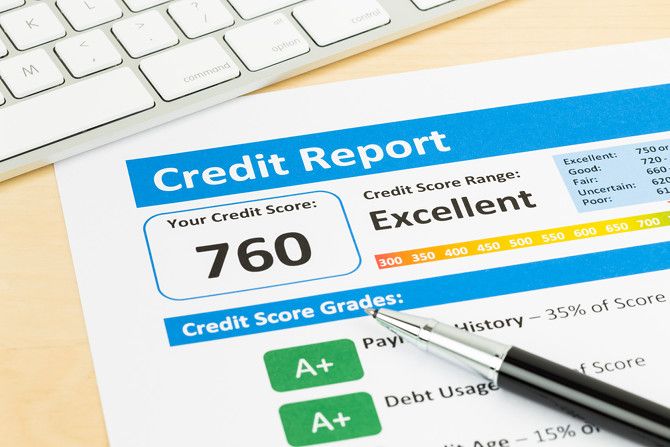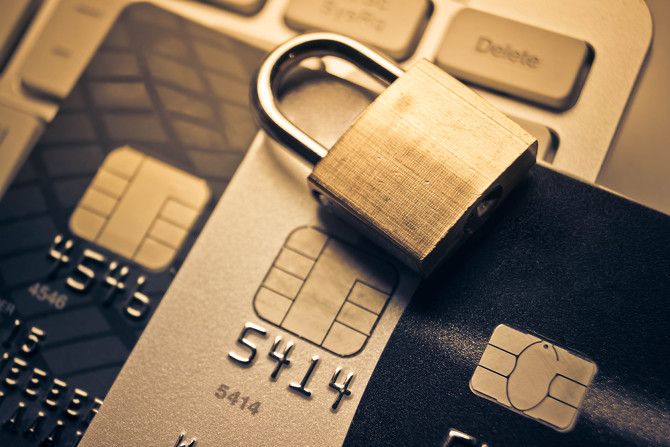The Great Equifax Debacle of 2017 is just one more in a long line of security breaches that may have released your sensitive personal details into the wild. If that data falls into the wrong hands, someone could use it to steal your identify and ruin your life.
But let's say your details have been compromised but your identity hasn't yet been stolen. Is there anything you can do to mitigate your risks? Or is your only option to sit back, wait, and hope that your compromised details are never actually used?
As it turns out, yes, there is something you can do: freeze your credit. In this article, we'll explain what that is, the benefits and drawbacks of it, and instructions on how to do it.
What Is a Credit Freeze?
In America, any person who has any kind of credit or has ever had credit in the past is tracked by non-governmental companies known as consumer reporting agencies (informally known as "credit bureaus"). The three national ones are TransUnion, Experian, and Equifax.
These consumer reporting agencies then sell your credit information and history to potential creditors who want to know your credit worthiness (i.e. how risky it would be to lend you money). This is called a "hard pull" and is necessary when you want to open new lines of credit.
When you initiate a security freeze (informally known as a "credit freeze"), you're basically telling a consumer reporting agency that you want to seal your credit information and make it unavailable to creditors. This makes it impossible to open new lines of credit in your name.
Why Freeze Credit? The Benefits
Freezing credit is a five-minute process and can be done on the internet or by phone. It's quick and pain-free, so there's no reason to put it off. Upon freezing your credit, you'll receive a special PIN code. This PIN code can be used for two things:
- Temporarily lift the freeze for a certain duration or a certain creditor.
- Permanently remove the freeze for good.
Needless to say, it's imperative that you DO NOT lose your PIN code.
Once your credit is frozen, nobody can open new lines of credit in your name as long as they don't know your special PIN code. This means no new credit cards, no mortgage or auto loans, no new insurance policies, no consumer financing (e.g. monthly plans for smartphones, laptops, or furniture), no new utility accounts, and no new bank accounts.
A credit freeze does NOT impact your current lines of credits.
If you have three credit cards and a mortgage, nothing will change after a freeze. You can keep using the cards per usual, and you'll still be responsible for repaying the mortgage. Nothing to worry about on that front.
Ultimately, with a credit freeze in place, malevolent users can't do anything to you even if they get their hands on your social security number, thus protecting your credit score.
The Downsides to Freezing Credit
As useful as it is, there are a few downsides to freezing credit.
Some third parties may want to run credit checks even when you aren't opening new lines of credit. Landlords want to know if you'll pay your rent on time, and some employers may want to see your financial trustworthiness, especially if you'll have access to financial accounts (e.g. cashier, accountant).
More importantly, credit freezes and thaws may require a fee. The fee varies depending on the consumer reporting agency and your resident state. Most charge $10 per freeze, some charge $5 per freeze, and a few may charge no fee. You may also have to pay to lift or remove the freeze, which usually costs the same as initiating the freeze.
When freezing credit, you must freeze at ALL THREE consumer reporting agencies: TransUnion, Experian, and Equifax. This could cost up to $30 to freeze, then up to another $30 to lift or remove the freeze. If you foresee several credit checks in the future, consider postponing the freeze.
Lastly, a credit freeze does not prevent ALL forms of identity theft. It protects you from new credit accounts unknowingly being opened, but your current credit accounts will still be alive and well -- if someone steals your debit card, for example, they can still drain your bank account. A credit freeze is also ineffective against medical identity theft.
How to Freeze Your Credit
You must freeze your credit at ALL THREE nationwide consumer reporting agencies: TransUnion, Experian, and Equifax. If you only freeze at one bureau, new lines of credit can still be opened by services that pull credit information from the other two.
TransUnion
Consult the TransUnion credit freeze fee table before starting.
To freeze online:
Visit the TransUnion freeze page, create an account, then follow the instructions. You can manage your freeze with this account, including lifts and removals.
To freeze by phone:
TransUnion recommends the online method, but if it isn't working for some reason, you can always call 1-888-909-8872 and follow the prompts. Use the same number to lift or remove.
Experian
Consult the Experian credit freeze fee table before starting.
To freeze online:
Visit the Experian freeze request form, fill it out, then click Submit. You can then use the Experian unfreeze request form to lift or remove the freeze. No account creation necessary.
To freeze by phone:
Experian recommends using the online method, but if it isn't working for some reason, you can always call 1-888-397-3742 and follow the prompts. Use the same number to lift or remove.
Equifax
Consult the Equifax credit freeze fee table [Broken URL Removed] before starting.
To freeze online:
Visit the Equifax freeze request form, fill it out, then click Submit. You can then use the Equifax unfreeze request form to lift or remove the freeze. No account creation necessary.
To freeze by phone:
Equifax recommends the online method, but if it isn't working for some reason, you can always call 1-888-298-0045 and follow the prompts. Use the same number to lift or remove.
Other Tips for Preventing Identity Theft
The first thing you should do, whether you initiate a credit freeze or not, is to familiarize yourself with the warning signs of identity theft. The sooner you can identify that your identity is stolen, the more likely it'll be that you can reverse the damage.
Next, be aware of all the inconspicuous ways your identity can be stolen: know what kind of information identity thieves seek, understand how credit card fraud works, and learn how hackers steal identities on public Wi-Fi. Then start using disposable web accounts to add another layer of protection against data leaks and breaches.
If your identity is stolen, immediately file a police report and let all your banks and lenders know so that they can walk you through the process of securing your accounts.
If you have any other questions about credit freezes, let us know in the comments. Otherwise, if you've ever frozen credit, let us know how it went!
Image Credit: dedivan1923/Depositphotos



